Now is the perfect time to start a business. Contrary to popular belief, there are plenty of opportunities out there. Starting a business may seem a little intimidating but it depends on the way you go about it.
Since business is a term we are all very familiar with, it can be easier to set one up than you might think. Many people have dreams of having their own business for many reasons.
Some people want to make money and as well as a career while others simply want something to supplement their income. Whatever the reason you may have in wanting to start a business, always begin doing it the right way, and do it with good intentions.
One popular belief is that you need tons of experience, expertise, and knowledge to start a business. The opposite is true. While it helps to go to school and learn the tricks of the trade, it does not necessarily mean that you cannot start a business because you do not have a degree.
The important things to remember are, you need to research, ask the right questions, and get the best advice you can.
What are the right questions to ask?
Below are ten questions to ask and these are only meant to get you started. Of course there will be many more as you go along, but at least you will have these to start with.
1) How to start a business without experience?
Think about what you already know about business. Use your work experience as a guide. Maybe there are things you have witnessed or realized that was not part of your daily tasks which you can use for your business. For instance, have you ever listened to what others are saying while you are at the office? Whether you listen to coworkers or supervisors talking at work, there have most likely been mentions about doing business that you have picked up on.
You may not even be aware of some things you have learned about doing business. Maybe you have heard complaints about what went wrong in the workplace … something you may have a solution for.
Or maybe you heard someone say, “I wish it could be done this way”; even though “it” could easily be done their way, they may probably have been told they weren’t allowed to.
2) What are some things you need to do to get started?

Research is the most important thing for you to do. First, ask the right questions. This is all part of the research process. You may have to research questions that you will need to have answers for if you do not know what questions to ask.
It is okay to search on the internet to find important questions to ask when starting a business. There are many resources on the Internet or at your local library that you can use to get started.
However, you will need to make sure that your sources are reliable. If you are reading an article and you can sense the information is totally outrageous, then you can come to a quick conclusion that it is probably not the right source to use.
When reading any article, you should make notes of the different points found within it. Whatever you do not understand, take that point and do more research on it. See if what was written was also stated elsewhere. Discovering that several writers are claiming the same or similar things can be an indication that the information may be something worth keeping in mind.
Another thing you will need to get started is legal advice. Never assume that what you learned where you work or what you think is okay is really legal.
Be sure you start your new business off on the “right foot” and do business according to the law. You will want to avoid being that person who did something illegal and now has a bad reputation that gets plastered all over the World Wide Web.

3) What are the legal matters you must know in order to get started?
It is impossible to know everything about the law, so be sure you speak with a lawyer if they offer a free consultation, and ask them what you should know.
Ethics play a role here too. There are many gray areas which are common in ethics. For instance, what do you tell a customer if you promised them a shipment by a certain date even though you already knew there is a possibility it cannot be fulfilled? You already promised it, but you know it may not happen.
If you say you are going to do something, you need to become known as a person who stands by their word. That is the bottom line. Give your customers quality products in a timely manner.
Do not make it a habit to rush in order to get the job done. Sometimes there are moments when you have to rush, but don’t let it become a standard happening if it is not necessary. For the most part, the only time you will need to rush is when the customer requests it.
4) What do you need to know about your target audience?
What are their interests? Do some research and see if there are any typical or general interests that you target audience may have. If you already know their interests, then you are ahead of the game. Of course, if you are the expert in your niche then you will know a lot about their interests already.
If necessary, you could do research on social media to find out what your target audience’s interests are as well. Facebook has groups and so does twitter. Find a group related to your niche and observe it to see what people are talking about. You can use what you learn there as advice on what types of products or services to market as well.
The best advice that I can offer you for using social media groups to learn more about your target audience is this: DO NOT join a group and post asking all kinds of questions. For instance, you don’t want to join a group and then ask everyone to give their opinion about their favorite game, or gadget. Observe first, and then engage in the conversation as you would with any friend. Get to know the individuals within the group first, and then ask them questions here and there. It is all about patience.
5) How do you commit yourself to a market solution, not just a small idea?
Ask yourself certain questions before trying an idea to see if it works. What problems does your target market have?
Once you can pinpoint their problem(s), then you can look for the solution(s). Most likely, you will not find any market without faults. There are plenty of problems that need to be resolved. Even the competition cannot resolve every issue out there.
Many entrepreneurs begin with a lot of “strong domain” experience but little to no business experience. Being in business is about finding solutions. That is what sets the strong businesses apart from all of the others.
You don’t want to sell just anything because you have observed that it made someone else a tidy profit. You need to have a passion about your business for one thing, and you want to give your target market something that will resolve an issue they may have.
This issue can be from something they bought somewhere else, or it can be an issue they have had for a period of time and need a solution for it. There may not even be a problem, so it may just come down to differentiating your product from what all of the rest are offering.
6) How do you choose your industry wisely?

Choose something that does not just interest your target market. You need to have an interest in it too. More than just a little interest, you need to like the products or services that are out there in the market.
If you do not like the products or services the market has to offer, how will you feel when you are doing business with the people who are interested in those products or services?
It’s my guess that you would NOT be very enthusiastic about what you are offering, and many of your customers (or potential customers) will pick up on that straight away. If that happens, it could break the business relationships you have worked so hard to create.
So please, do yourself a favour and do NOT become involved with an industry that you do not have an utmost passion about.
7) How do you build street credibility?
You need to let people know who you are. This pertains to building relationships with your customers, and since you are new in your business, you will be building relationships with potential customers.
Before launching your big business idea spend some time learning more about your industry and the people who spend money supporting it (as a customer).
You can always try selling other people’s products first (as an affiliate marketer) and learn something new about the products you sell them. Once you have enough knowledge about the product (or service) and you are talking about it online (as in blogging or on social media), this will help build your business street credibility as the people who read what you’ve written should come to feel that you know what you are talking about.
8) What free resources can you rely on?
Networking is a great free resource. Talking to others in the industry and learning new things about it will be to your advantage. You should also ask for advice. However, before you jump right in and start asking for advice, break the ice with some “small talk” first. Get to know some of the people before asking a lot of business questions.
In fact, you can treat this more like a social outing because you do NOT want to only try to get information from people, as this WOULD actually turn most of them off and then they would not want to give you ANY information.
You can also consider resources that are low cost instead of free. Sometimes Universities offer free or low cost coursework, books, or seminars. You might want to look into this if you are not sure how to network properly. This is where you can ask a BUNCH of questions because that is what is encouraged at school.
9) When will you know you need to seek outside help?
You will need a business plan. When creating your business plan, it is always best to ask for help with it. For example, a gentleman named Evan Solida founded a company called Cerevellum back in early 2009. His invention was a digital rearview mirror for bicycles.
Naturally, Mr. Solida wanted to save money any way he could, so he used internet resources to create his plan, and also draft his legal documents. With much frustration and use of a lot of his time, he then decided it would be better to pay for a professional to help with both tasks.
The business plan needs to meet certain criteria; especially if this is a business that you may need to obtain a grant for or a small loan. Banks and agencies that approve grants want to see a solid plan before they take the risk to lend or give you money. It is the same thing when you or anyone else will invest in a company. You want to see their annual report, which gives you this information and more.
You know that investing in any company is a risk, but you should not want to take too much of a risk. You also do not want to risk that your business plan is of poor quality. Not just for your customers’ sake, but for the future of your business.
All the financials and marketing need to be taken care of from the start. Otherwise, you will need to back track and it will waste a lot of valuable time that you could be spending making money.
10) How do you put your strengths to work?
Think about what your strengths really are. Is it planning the business, giving creative ideas, or being the solutions finder?
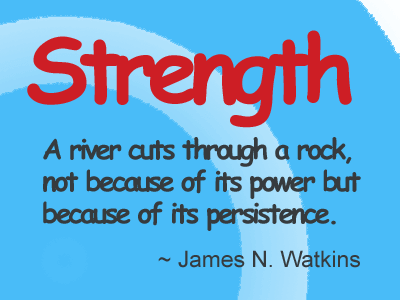
Maybe your strength is marketing, but whatever your strengths are, put them to work for you. Work on the strengths first and when you have mastered one, then you can move on to another. Otherwise, it will take you much longer to get things running smoothly.
Putting a business together takes time and patience. Do not try to put it together too quickly. You want to be focused and organized, as this will help you to be “well planned”. A business with a strong plan is more likely to succeed than something you just threw together in an hour.
For your Information
Now you know at least ten questions to ask. These questions were given to you for basic information and a foundation to get you started.
Now I want to give you some ideas as to what goes into a business plan. This is so you know what to expect and you can at least try and draft one on your own. Remember, it is best to get a professional to do this for you. However, you still need to know what goes into a business plan. In this way, you will know that the one that gets professional written for you has everything in it that it should.
Now for a list of the different sections of a business plan and an explanation about each section; the more you know about the business plan, the better prepared you will be.
Remember, if you want to start a business without experience, this is where you can learn much of the information you will need to get started. So let us move forward.
Not all business plans are created equal, but you will at least have basic information to include. Once you begin your plan, it will change over time and also remember; you will not know everything that needs to be included as to why I suggest getting a professional to help you with it. Below are some things you will want included.
Executive Summary
The executive summary will tell the person reading the plan what you want for your business. A big mistake often made is burying this information somewhere else in the plan. The summary needs to explain certain things from the start, so you need to be clear and concise in the very beginning.
Keep the summary short and businesslike and no more than half of a page. Depending on how complicated or detailed you need to be about how you will use your funds, you may need to make the summary a bit longer. As a general rule of thumb (and since you are just starting out), you only need your summary to be half of a page.
There are some other key elements that need to be included in the plan. They are as follows: business concept, financial features, financial requirements, current business position, and major achievements. These are not the ones I will focus on too much, but these too should be kept in mind.
Business Description
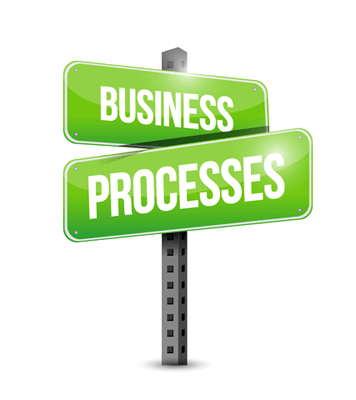
Not to be confused with the executive summary, you usually begin this section with a short description of the industry. So this is not really beginning with just your business, but rather how the industry plays a role in your business.
You will want to describe the industry and discuss the outlook and future possibilities of what will go on. This is all gathered from what happened in the past, so it is a prediction of what could happen or is most likely to happen because of business trends. Also, provide information about all the various markets within the industry.
So what you want to talk about is new products and developments that will benefit or affect your business in a positive way.
Make sure to get the most reliable data for this part and always list your sources. I’ll talk more about sources later in this article, as they are important, but I want the focus to be on the different sections of the plan first.
How you will Profit
The main reason for having a business is to make a profit. All businesspersons need to ask themselves, “How do I make money?” When you ask yourself this question, it should open your mind and help you realize the different ways to bring in an income.

You do not need a huge section just on this topic, but you want to explain factors, which you think will make you successful in making a profit.
Before presenting the business plan, you want to explain any equity and debt the business will incur and also explain how this will help make your business more profitable.
Also include ways you want to expand your business or make it grow using the equity or debt. As an Internet marketer, you probably will not incur much debt or any at all. It depends solely on what you need to get started.
Defining your Market Strategies
Marketing strategies are based on a thorough study of the market. This will help you become very familiar with all parts of the market, including the target market. Defining who your target market is will be very important so you can earn your share of the sales.
When you are defining your market strategies, at some point you will need to determine the pricing of your products and/or services. A market analysis will help you to determine the pricing. It is also important to know how you compare to your competition and if you can beat them in pricing … or not.
Market Share Projection
As mentioned earlier, when you are describing your industry of choice, you want to discuss the outlook and future possibilities. This information will be gathered on past happenings. So your projections are based on what happened previously in the industry.
Believe it or not, your market share projection is also based on your competition as well as promotional strategies. You can look at how much advertising is done, how it is done, and also research how much it will cost you to advertise the same way. You can always come up with different ways to advertise, but you need a benchmark to start out from.
Position of the Business
When talking about your marketing strategy, you will find it is impossible not to talk about the position of your business. What motivates your target and what they require will affect your company’s position in the marketplace.
Again, there are more questions that need to be asked and answered to understand this better.
A few questions to ask are: how are your competitors positioning themselves? What specific attributes do your products and services have that the competition does not have? What needs does your product fulfill for the customer?
After you answer these basic questions, you can then begin to develop your business’ position in the market and write about it on the plan.
Pricing
The price tag you place on your items, whether it is a product or service, will directly affect the success of your business. Strategies for pricing can be very complex; however, the rules are very basic and straightforward.
You must be able to cover costs, lowering costs will lower sales prices, and prices must reflect changes in the market and respond to the demand of your market. Prices must also be established to help assure sales.
The longevity of your products, utility, and maintenance must be reviewed on a regular basis and adjust the prices according to the market.
Prices are used to keep the market in order, so this is the last, but not least, important strategy to keep in mind when determining your prices. You do not want to just slap a price tag on something because you think people will buy it for the value of it. You have to be in competition with other businesses and play the game strategically.
Distribution
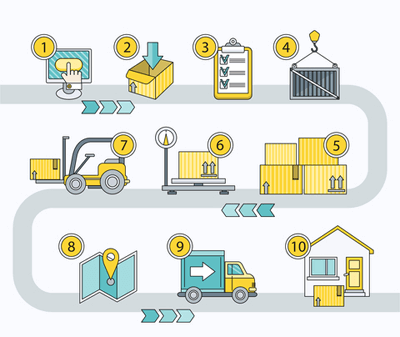
This part is for you, mainly if you are selling physical goods. Since there are many of you out there that may sell goods on eBay or from your own website or blog, this is why I need to talk about this section.
So what is distribution exactly? It is the entire process of when a product is manufactured to when it is in the hands of the end user – the customer. There are different channels that make up distribution.
Having a strong distribution of products definitely helps you get an edge in your share of the market. The faster the products can go from production to the customer, the better. Make sure the products are of the best quality though because you do not want the customer constantly returning the goods.
Promotional Planning
Advertisements of any kind are all included in the promotional planning. How you distribute the communication about your business is also part of it. The way in which this is designed will result in attracting the right people to do business with.
Some other things that you may not be aware of that are part of promoting your business is how you package your products.
Public relations are also included here. Most of the things you are familiar with are advertising, sales promotions, and personal sales. Each strategy is different in its own respect, but very important in the final outcome of the promotion.
Potential Sales

After thoroughly analyzing the market, you need to make a determination using a quantitative outlook, which concerns the potential of your own business. An initial projection in your plan must be formed based on the position of the product, price, distribution (for physical goods), sales strategies, and how the market is defined.
Competition Analysis
You first need to identify who your competition is. Gather a list of companies that sell the same products or ones that are very similar. For this section, you will make a statement of your business strategy and how it relates to your competition.
The main purpose of this part is to pinpoint the strengths and weaknesses of your competition. Knowing this will only help you improve their weaknesses for your own sake.
S.W.O.T. Analysis
A S.W.O.T. analysis is very important for developing your business and keeps it running to its full potential. For those of you who are not familiar with what this is, “S” stands for strengths, “W” is for weaknesses, “O” is for opportunities, and “T” is for Threats.
You not only need to learn about the strengths and weaknesses of your competition as you do with competitive analysis, but you also have to realize your own.
The opportunities and threats are more directly related to your competition. You can look at it as the opportunity you have in the midst of all the competition and what it is about your competition that can be a threat to your own place in the market.

Design Plan
Investors need a description of your company’s product design and also its development. Within the section, there needs to be a chart showing the development of the product or service. You will also need to include a budget showing how the company will reach goals.
Product and or Service Development Goals
If you are selling physical products, you will need to list the goals here. You can also list the strategies involved for reaching certain goals for a service business.
Your goals should be centered on technical and marketing aspects of your products and/or services. You need this as an outline for your business partners or for yourself if you are a sole proprietor, so you know what to work on in order to reach your goals.
Budget
Budgets are very important as you want to make sure you have the funds available to do business in the first place. As you make money, you also need to have a plan as to where the money will go in order to help your business grow, and to continuously develop and improve it.
If you are designing a product, you need to account for all the costs that will be involved in creating the product, take it to production, and getting it to the customer.
As for service, you will need to make sure you have the money to get a business plan written, what equipment you may need to help you with your services, and if you need a brick and mortar building to cater to the needs of your clients.
Knowing how each dollar is being spent is very crucial. Proper planning can only help your business while poor planning is very destructive. I have learned that about half of all businesses started will fail within their first year. You can help yourself to avoid this happening to your business with proper budgeting.
Risk Assessment

What risks are involved in either producing products or offering services? During the stages of development of your product or service there will be some risks you need to be aware of.
Risks involved with the creation of products usually happen with the technical development of the product. For services, it is usually in the strategies for planning the types of services you offer.
Income Statement
This is a very simple and straightforward report which shows your business’ cash generating abilities. It shows how well your company does in the financial spectrum, and is a financial picture of when sales are made, and when expenses occur. It helps you better plan for the future of your business as well.
The income statement is a multi-purpose report giving you a bigger picture of how your business is doing overall. Always use this as a guide from year to year and you will get an idea of what changes need to be made.
Other Sections
There are other sections that need to be written in the business plan. There is just no way to talk about all of them in detail here. I have simply included sections that I feel are very important to get started with.
All the sections of the business plan play an important role in the overall planning of your business from start to finish.
Some other sections that were not mentioned above are as follows:
- Procedures
- Scheduling and Costs
- Personnel
- Operations and Management
- And more
To find out everything you need in your plan, you have to talk to a professional and do a thorough research about it. You may not be able to include everything you want, and different business types require different information to be included in the plan.
Sources
You will need reliable sources to get the information for your business plan. Reliable sources do not include blogs or articles you found in article directories. You can use them to get some information, but you will need to research further about what is stated there. You should NEVER list these sites as a source for your plan though.
Another source you can use to get basic information for this section is Wikipedia, but is should only be used as a base for the information. On sites like this, anyone can add and edit information so you can never be certain as to the accuracy, thus the reason not to list this site either, as one of your sources.
Reliable sources are peer reviewed articles, information gathered from networking with other business professionals, and consulting a professional who has been in the business for a long time that can actually write your business plan.
Conclusion
Even if you are not going to the bank for a loan or getting a grant, it is still important to have a plan in place to run your business.
The business in a box idea is simple. People have been running businesses for a very long time and so it is merely that you would be using any information out there from other people’s experience to devise your own plan.
It is also about asking the right questions. Even though there may be hundreds of questions you want to ask, you are provided with basic questions that need to be asked. Getting the answers to these questions will get you started on your way.
Think about it like this: if I take all of these ideas, organize them and place them in a box and then deliver it to you, then you will open the box and have exactly what you need to get started. Thus you will have a business in a box.
Checklist

Here is a checklist of the different things you will need to get started on your business in a box. The most important is the business plan because you need to know what goes into production in making a product, and what you need to get your services up and running.
First, answer the following ten key questions:
- How to start a business without experience?
- What are some things to do to get started?
- What are the legal matters you must know in order to get started?
- What do you need to know about your target audience?
- How do you commit yourself to a market solution not just a small idea?
- How do you choose your industry wisely?
- How do you build street credibility?
- What free resources can you rely on?
- When will you know you need to see outside help?
- How do you put your strengths to work?
Also remember, the most important aspect to any business is to be well prepared with a plan. The most important thing you can do for your business is to create a business plan. Ask yourself and answer these questions:
- How do I write a business plan?
- What are the sections to the plan?
- How will each section help me?
- Are all business plans created equal?
- Where can I go to get a plan designed for me?
- What else do I need to know?
Always be prepared as that is the most important thing when starting your new business.
Think about how you have learned to start a business with no experience by simply reading this article. If you read between the lines, all the information you need is out there. I have only gathered some information together to get you started. Nothing will happen instantly and everything you need to do will require some effort on your part.
Following are stories from those who have started the very own home based businesses. May these stories assist those of you in need of even MORE ideas … or ways in which to expand your home based business.
- Stewart Income Tax & Business Services was originally founded as a home based business in 2014.
- Scratch Bakery owned and operated by Lashonda Sanford, started initially as a home based business offering cupcakes, gooey bars and classic homemade desserts.
- Signe Jorgenson lost her job and started up her own home based business, Signe Jorgenson Editorial Services.
- Kathleen Rutishauser started a business named Daughter for Hire as a home based business … NOW look at her go!
- A Farmers Market that allows vendors and merchants in that may have a small home based business and some with licensed food processing . . . upon market manager approval (naturally!).
- Jennifer Stewart started a seasonal home based business preparing income taxes as a way to earn extra income.
- Julie Lekwauwa started making jams as a “kind of a stress-reliever” and this has now grown into cottage industry business.
- Pro X Home Center began in 2004 as a home based business building carports.
- Kimberly McDonald went from a home based business to a storefront business. She now operates a full-service, award-winning bakery, Simply Desserts.
- Chelsea Wettstein and her mom, Ginger Wettstein teamed up and took their passion to the masses by opening their home baking business.
Please, let me know when I can add YOUR successful home based business to this list.



![By Tomwsulcer (Own work) [CC0], via Wikimedia Commons](https://upload.wikimedia.org/wikipedia/commons/4/4f/Business_Feedback_Loop_PNG_version.png)
![By Arbeck (Own work) [CC BY 3.0 (http://creativecommons.org/licenses/by/3.0)], via Wikimedia Commons](https://upload.wikimedia.org/wikipedia/commons/thumb/1/1b/Credibility_Trust_Provenace_data.svg/500px-Credibility_Trust_Provenace_data.svg.png)
![By Iliad (Transferred from fr.wikipedia) [Public domain], via Wikimedia Commons](https://useyourpassion.com/wp-content/uploads/2016/11/starting-a-business-with-absolutely-no-experience-image04-1.png)
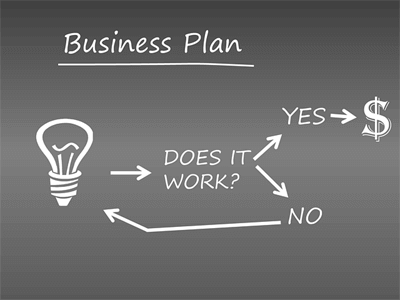

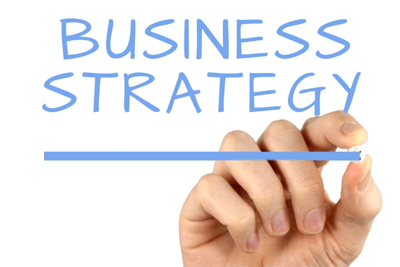

![By Jesse Mecham (http://www.youneedabudget.com/company/press) [Public domain], via Wikimedia Commons](https://upload.wikimedia.org/wikipedia/commons/3/32/You_Need_A_Budget_Logo.png)
![By Tennessee Tuxedo (Own work) [CC BY-SA 4.0 (http://creativecommons.org/licenses/by-sa/4.0)], via Wikimedia Commons](https://upload.wikimedia.org/wikipedia/commons/2/24/Citing.jpg)